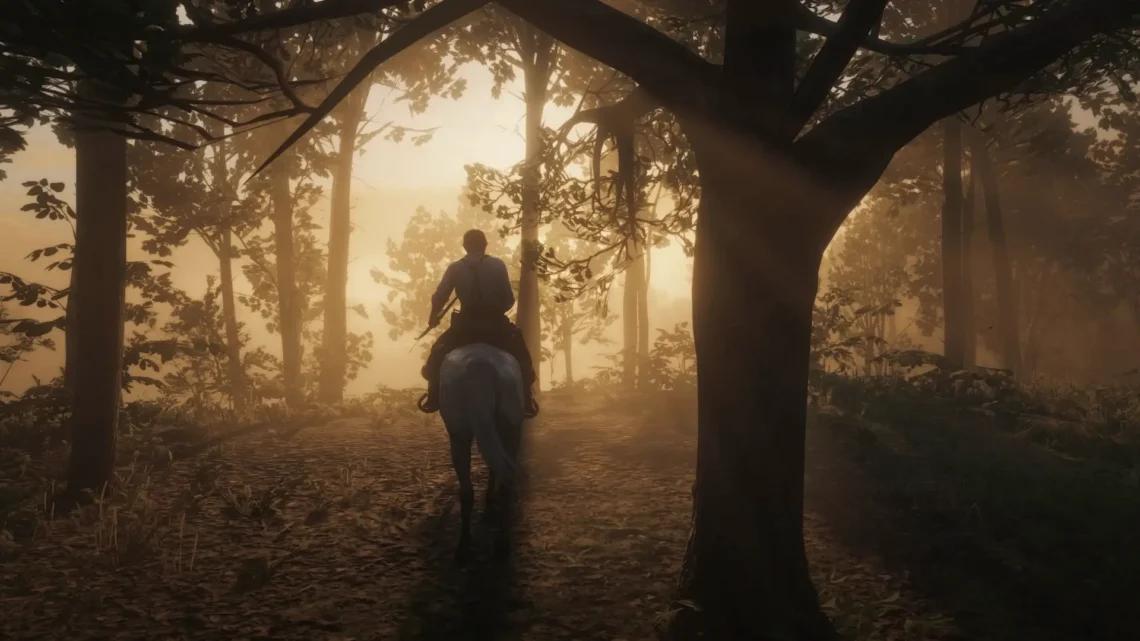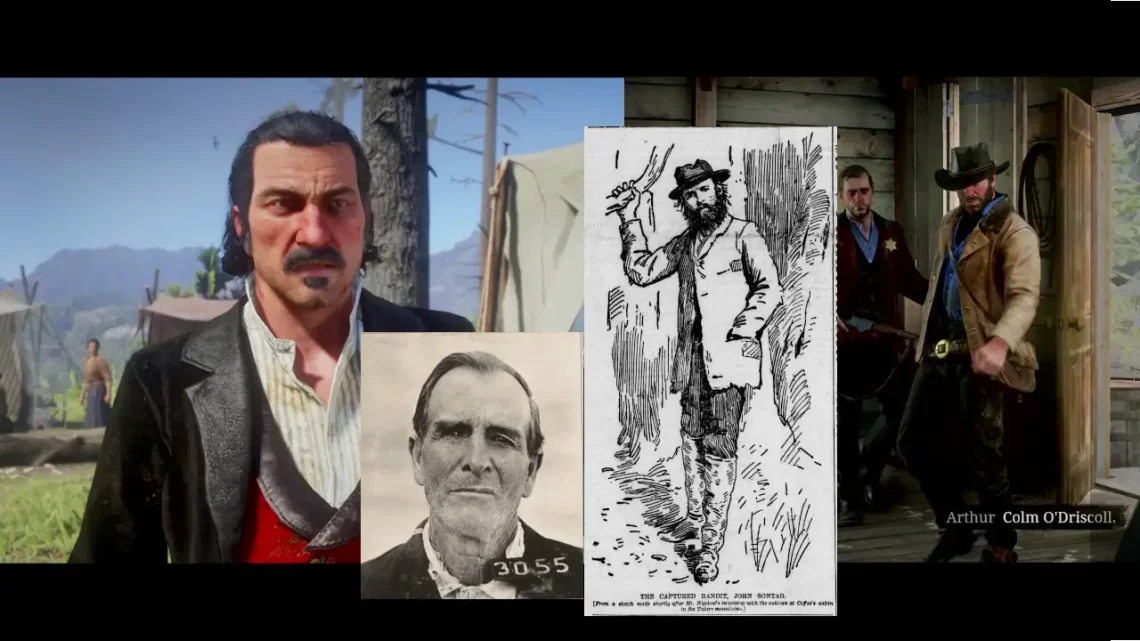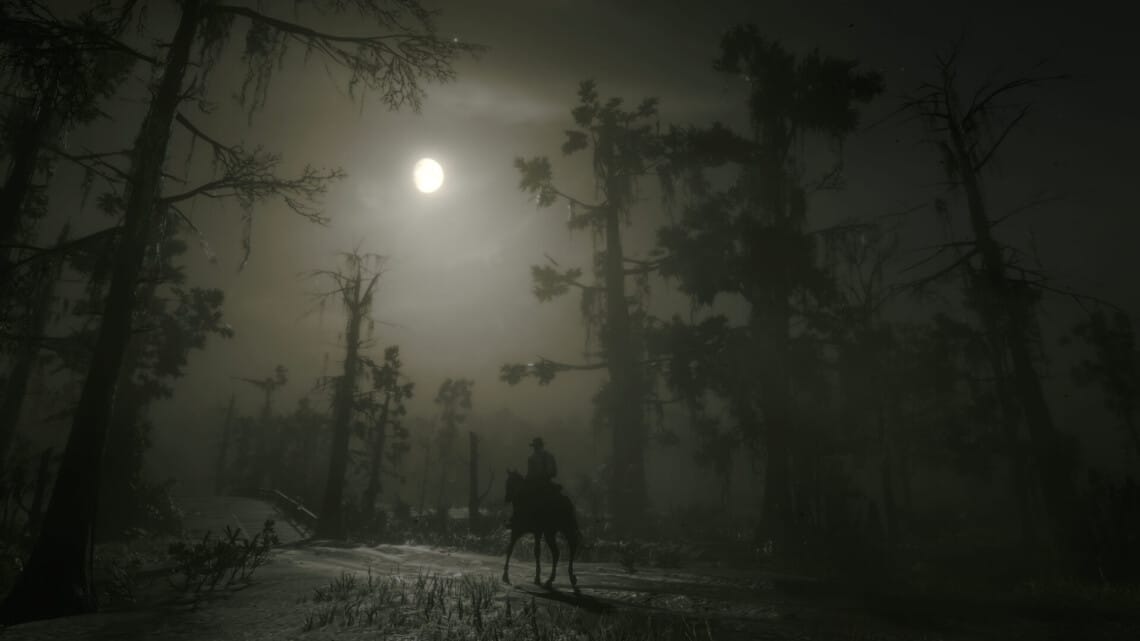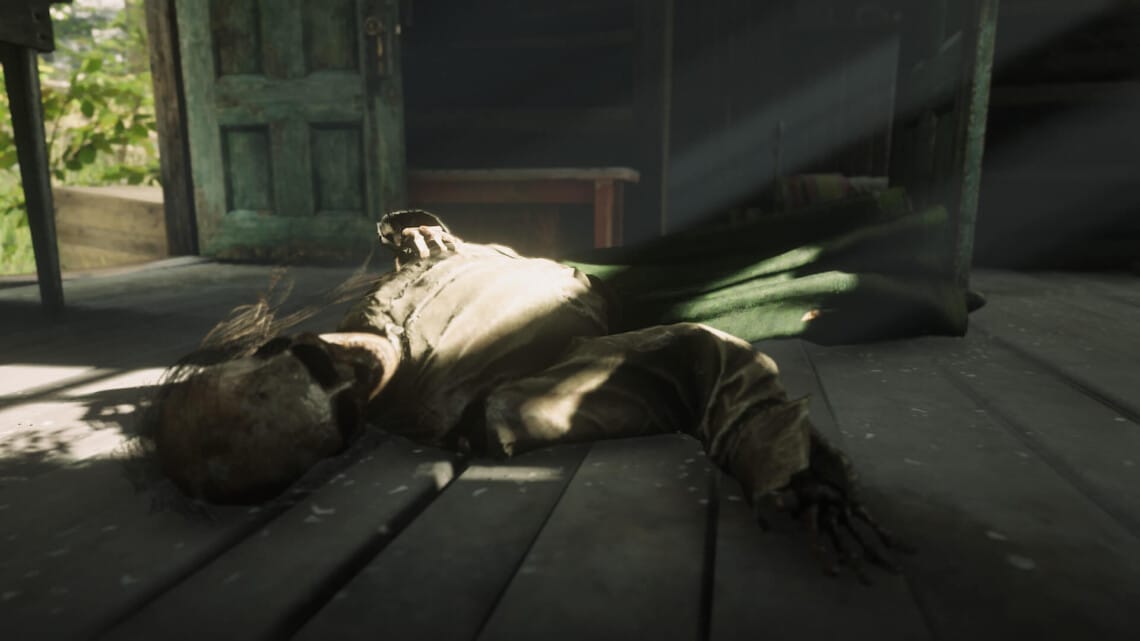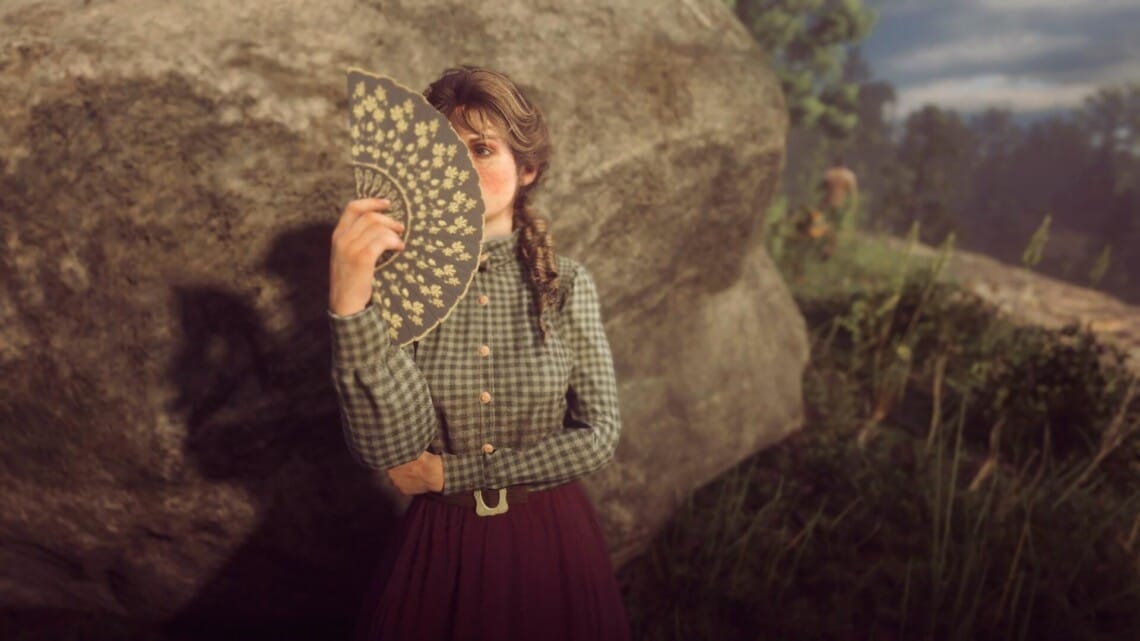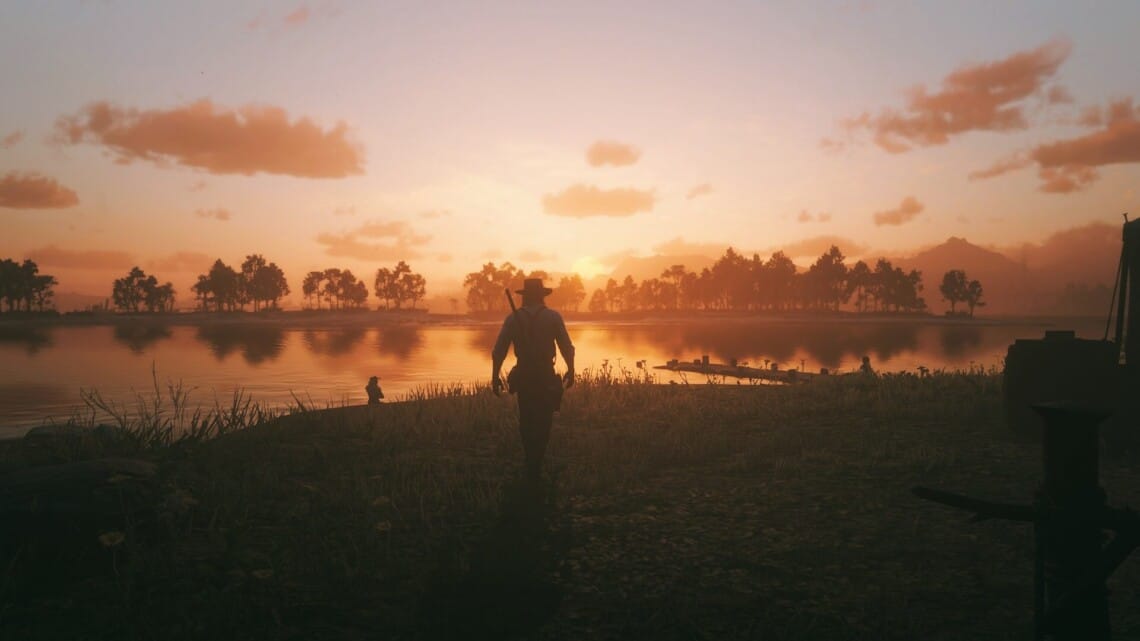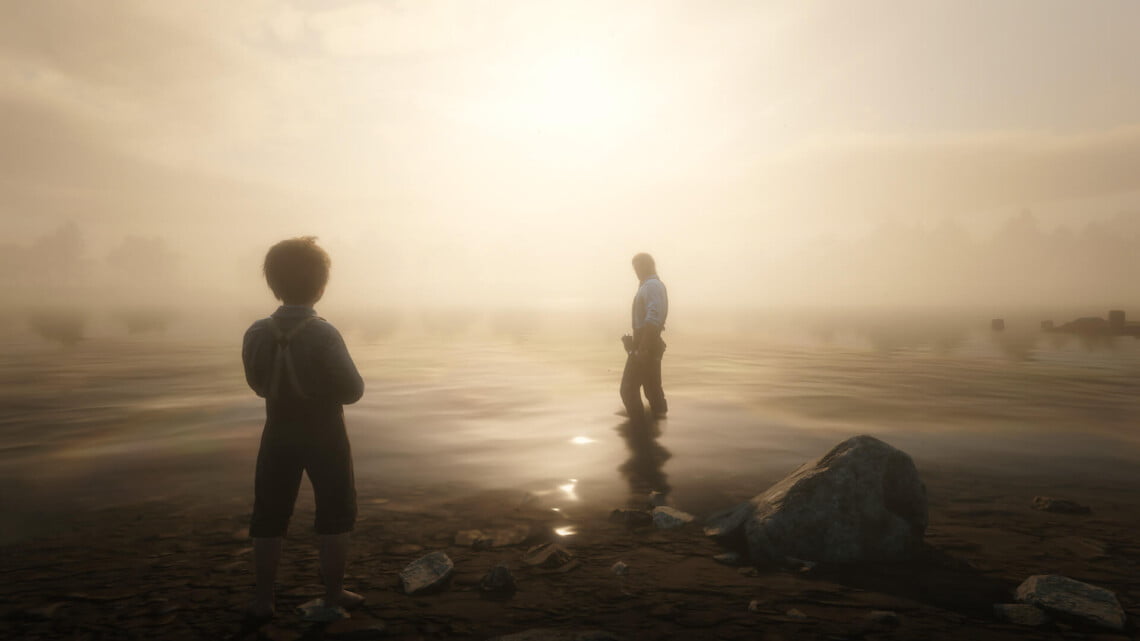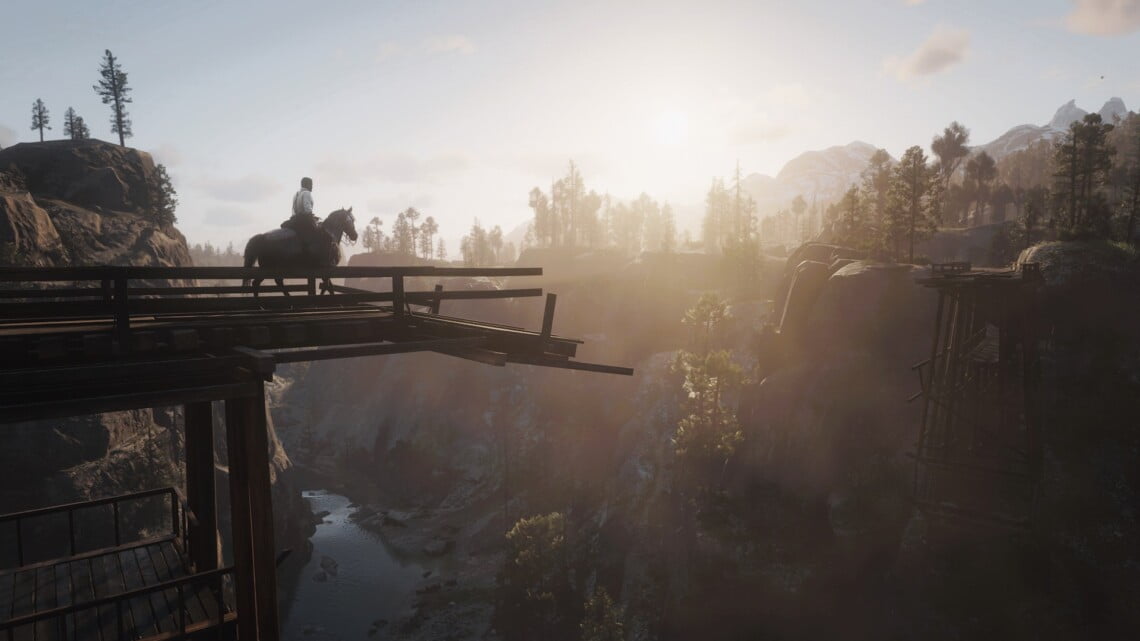Red Dead Redemption 2 is a paradox: despite justifiably being called one of the greatest games ever made, as a work of narrative art, it falls short of greatness. In aspects — the standout performances, the rendition of characters’ facial expressions, the golden choruses of the sunsets — it is superb. However, despite the story's powerful effects, RDR2's reputation as a superlative work is undeserved. Some of its formal problems are, perhaps, inevitable in a narrative form as nascent as the video game. Plot holes break the fabric of the story here and there.
The history of the Wild West is so enshrouded in myth, lies, obfuscations, half-truths, and rumor that once these delicate layers are peeled back, the definite facts they're mounded on seem scant enough to be scattered by a breeze — if they weren't weighted with blood and gold. Famous figures like outlaw Emmett Dalton and Wyatt Earp's wife, Josephine, intertwined the bare facts of their lives with legend. In the attempt to immortalize themselves, they erased themselves: it is not always clear whether something really happened, let alone how it happened or who did it.
More allusions to Emily Brontë's Wuthering Heights in Red Dead Redemption 2, including themes, character and mission names, and more.
The flawed beliefs about gender that Dan Houser, Michael Unsworth, and Rupert Humphries demonstrate through RDR2 harm their efforts to write characters of both the genders the game depicts. They dismiss the women and damn the men rather than allow them to act in ways the Western codes as feminine. If they were able to understand that women are not lesser beings, perhaps their minds would be broad enough to imagine other endings for their male characters. But they aren't: women are not written well in RDR2.
Homophobia often shares roots with misogyny: patriarchal constructs define male homosexuality as inherently feminine, which patriarchy believes is bad, because, naturally, women are less than, other, prone to evil, etc. Rockstar's portrayals of women in Red Dead Redemption 2 don't significantly diverge from this viewpoint.
The remaining allusions to King Arthur in RDR2 that didn’t fit into essays elsewhere: what's up with Kieran's beheading, why Arthur sees a deer in his honor visions, Pleasance, and much more.
Red Dead Redemption 2 mourns the loss of Eden: the outlaw life in pre-Industrial America. But under the brutal rule of colonialism, who is it who lost paradise? All articles on this site feature detailed discussion of literary allusions in Red Dead Redemption 2, and as such contain unmarked major and minor spoilers for the game, and occasionally the eventual fates of some characters in Red Dead Redemption. Read at your own risk. One of the cleverest things the developers did in Red Dead Redemption 2 was to make the technical limitations of Red Dead Redemption thematic. John can’t swim; Arthur can. John prints; Arthur writes. Arthur is more eloquent…
One of the writers’ apparent motivations in writing Red Dead Redemption 2 was to make Red Dead Redemption even more sad. The way the first game is retconned in the second one can be annoying because of the mismatch in details, but at times, it’s very effective ...
In Red Dead Redemption 2, choices for the player are plentiful, but they rarely have any impact on the game’s narrative. At most, they affect its mood. Of course, in any story game the outcomes have to be predetermined (at this stage, at any rate), but the differences that appear in the story are small indeed. The player can’t change any outcome; you can’t save anyone.
One of the ways Red Dead Redemption 2 often makes literary allusions is in prophetic statements from special NPCs. Blind Man Cassidy gives Arthur Morgan one that alludes to Paradise Lost and that appears, at first blush, to be about Dutch Van der Linde and Micah Bell: “Your father is seduced by the one with the forked tongue. It's no use hoping.” However, that isn't the truest reading of this prophecy. Dutch is also Satan/Eve (as we’ve seen, these characters combine in Dutch) to Hosea Matthews’s Adam. It's Hosea who is Arthur's truest father.
